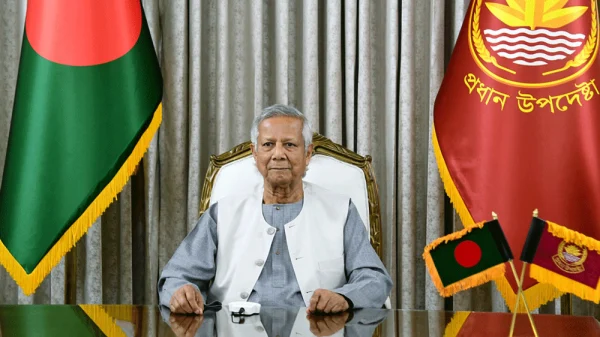Microsoft co-founder Bill Gates leaves board

Microsoft on Friday announced that co-founder Bill Gates has left its board of directors to devote more time to philanthropy.
The 64-year-old stopped being involved in day-to-day operations at the firm more than a decade ago, turning his attention to the foundation he launched with his wife, Melinda.
Gates served as chairman of Microsoft’s board of directors until early in 2014 and has now stepped away entirely, according to the Redmond-based technology giant.
“It’s been a tremendous honor and privilege to have worked with and learned from Bill over the years,” Microsoft chief executive and company veteran Satya Nadella said in a release.
“Bill founded our company with a belief in the democratizing force of software and a passion to solve society’s most pressing challenges; and Microsoft and the world are better for it.”
Nadella said Microsoft would continue to benefit from Gates’ “technical passion and advice” in his continuing role as a technical advisor.
“I am grateful for Bill’s friendship and look forward to continuing to work alongside him,” Nadella said.
– Computing and compassion –
Gates left his CEO position in 2000, handing the company reins to Steve Ballmer to devote more time to his charitable foundation.
He gave up the role of chairman at the same time Nadella became Microsoft’s third CEO in 2014.
Regularly listed among the world’s richest people, William H. Gates was a geeky-looking young man when he and Paul Allen co-founded Microsoft in 1975.
Gates grew up in Seattle with two sisters. His father William was an attorney and his late mother Mary was a schoolteacher and chairwoman of United Way International.
He began programming computers as a 13-year-old student, and fell in love with the machines.
Among the tales told about Gates is that while working on school computers, he tinkered with programming to put himself in classes made up mostly of girls.
With his parents’ blessing, Gates dropped out of Harvard to start “Micro-soft” with his late childhood friend Allen.
A key move was to focus on licensing software to computer makers in numerous “partnerships” that resulted in affordable machines being available to the masses.
As the personal computer market grew, Microsoft became the world’s top software company. Its virtual monopoly led to a much-publicized antitrust trial, in which the company managed to avert a break-up but had to endure years of government monitoring.
Gates went on to turn his attention from software to fighting disease and other humanitarian challenges with his wife, under the auspices of the Bill and Melinda Gates Foundation.
“This move is not surprising to the Street as Gates has continued to focus more on his myriad of philanthropies across the globe over the past decade,” Wedbush analyst Daniel Ives said in a note to investors.
“Gates is a historic figure in the technology world and his legacy at Microsoft will be felt in Redmond for decades to come.”























Leave a Reply